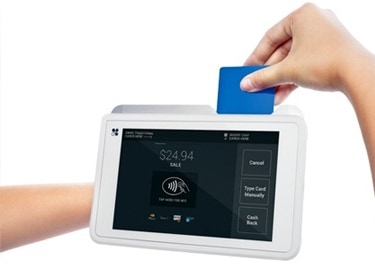If the world of credit card processing confuses you, you are far from alone. In addition to the various entities with a stake in the process, there are many different terms thrown around which can sometimes seem overwhelming to anyone who simply wants to accept credit and debit card payments. What can make the process more daunting is when some terms are used interchangeably. Here, we provide a brief description of some of the more common card processing terms to help you understand what really means what, and perhaps to navigate merchant account selection more easily.
Merchant Account
Let’s start with the basics. A merchant account is not a regular bank account. It is a special account with a financial institution or other provider which allows a business or individual (merchant) to collect payment by way of credit and debit cards. After the proceeds from a transaction are deposited into a merchant account, the money can be transferred to a regular bank account.
Card Associations
Visa, MasterCard, and others like them are at the head of their own card associations. Each card association is comprised of hundreds or even thousands of card-issuing financial institutions. A bank or credit union that that pays to be included in Visa’s card association, for instance, will issue Visa cards to its customers. Card associations set up their own rules and processes for their members to follow. The associations provide services to their members, but they do not issue cards. The issuer shares its processing fee with Visa or MasterCard. American Express and Discover are not associations because they issue their own cards.
Credit Card Issuer
The credit card issuer is a bank or credit union that makes cards available for their customers. Perhaps your credit card is branded with an airline for purposes of earning mileage, but the name of the actual issuer is somewhere on the card, too. Perhaps on the back. When a customer uses a credit card, the processor will check with the issuing financial institution to confirm funds or credit are available.
Processor
The payment processor is the middle guy who communicates with both the financial institution that issued the customer’s card and the financial institution which provides the merchant account. All this happens in a matter of a few seconds. If there are any disputes over payment, the processor will be involved again, taking a fee from the merchant for doing so. When the credit card issuer communicates that the customer has sufficient credit or funds available, the processor moves forward with applying the credit or debit. If funds are not available, or there is an issue with the card, the transaction is rejected. This all happens in less more than the blink of an eye. In addition to checking for sufficient funds (debit cards) or credit (credit cards) in the customer’s account, the processor also takes security measures to ensure the card number is legitimate.
Payment card settlement
The customer’s payment is not deposited in the merchant account until the issuing financial institution grants credit for the customer or makes a debit on the customer’s account. When the balance is deposited, it has been settled. Subsequently, the settlement amount will be what the customer paid minus all processing and flat fees that are deducted by the various entities involved in the process. Meanwhile, a hold is placed on the customer’s funds and the transaction is settled by the gateway on a nightly basis. When that occurs, the money moves from the card holder’s account into the merchant account.

Transaction fees
Each time a customer pays for goods or services using a card number, the merchant is charged a transaction fee. This usually includes a percentage of the sale amount, such as 2.5%. There may also be a flat fee, such as 25 cents per transaction. Using those numbers as an example, a sale of $100 would have deducted from it a total transaction fee of $2.75. Other flat fees are applied during the course of the transaction as well, such as batch fees and statement fees.
Batch processing and fees
When a merchant takes credit card payments, they do not settle them individually or immediately. This usually happens at the end of the day for all credit card transactions that occurred that day. Processors apply batch fees, which is a small charge for each batch of transactions settled. These fees are also known as settlement fees, daily closeout fees, or batch header fees. They all refer to the same process.
Payment gateway
If you are collecting money online (e-commerce), you will require a payment gateway, which communicates with all the processors. Just as its name implies, the gateway is an entry point to the entire process. When a customer submits the payment form, the gateway takes the encrypted transaction data and pushes it to the appropriate processor. The processor in turn informs the credit card issuer of the transaction.
ACH/EFT/eChecks
We have talked only about credit and debit card payments, but it is also possible to accept payment when a customer provides their bank account information. ACH stands for Automated Clearing House, and it refers to electronically moving money from one bank account to another. That is where Electronic Funds Transfer, or EFT, comes into play. Customers who pay by eCheck are entering their bank routing information, and are thus executing an EFT from their bank account to the merchant account.
PCI Compliance
The Payment Card Industry Data Security Standard (PCI DSS) is meant to ensure everyone involved in accepting, transmitting or storing credit card information meets a high level of security. The PCI organization was set up by Visa, MasterCard, American Express, Discover and JCB to improve payment account security. It affects payment gateways, processors, software providers, businesses that accept credit card payments, and more.
Now that you are armed with these common terms, you should be able to better navigate the domain of card processing and to discuss fees and options like a pro.
